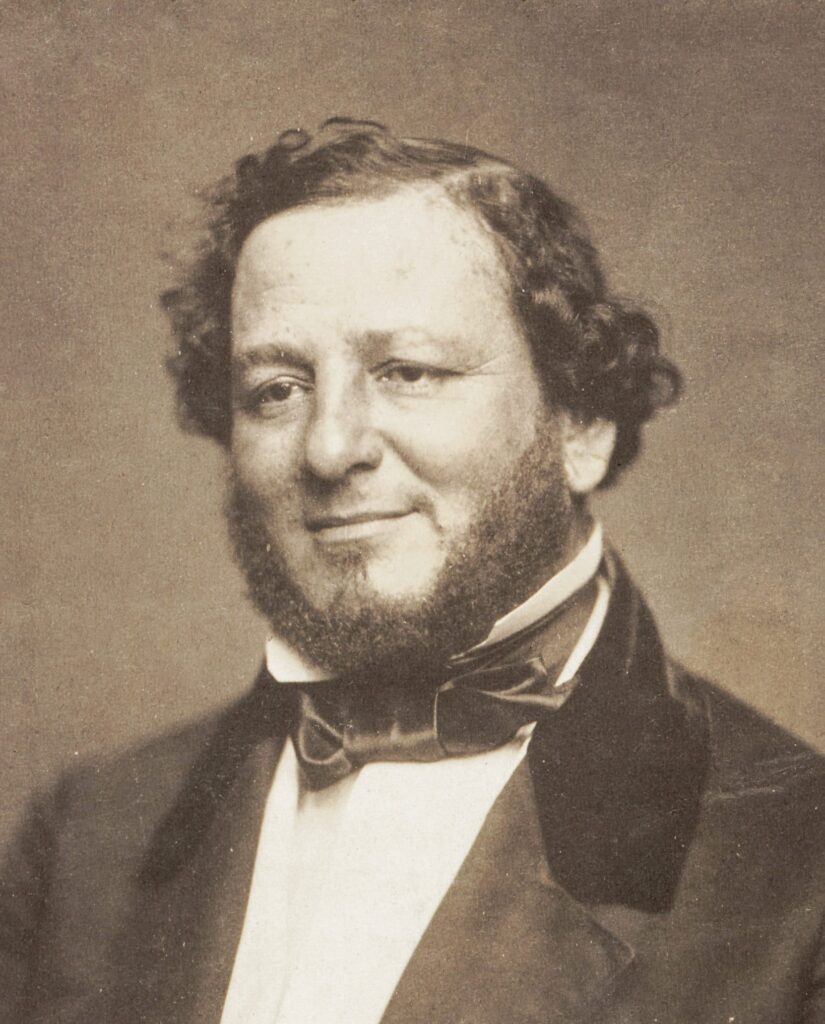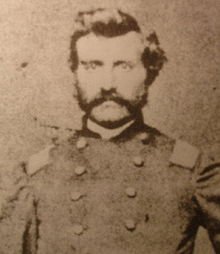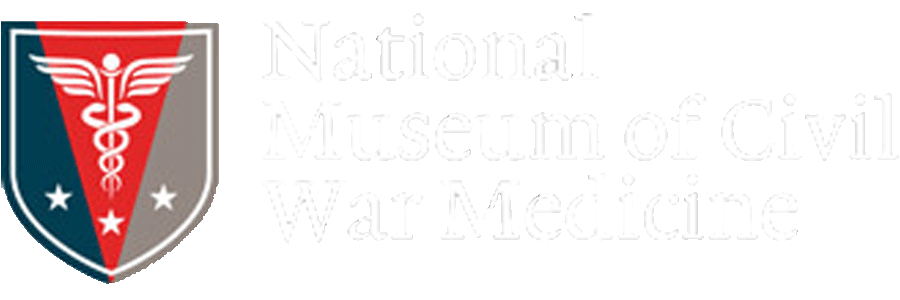Table of Contents
Reflecting on this holiday season, in which members of the Jewish community celebrate Hanukkah, the Festival of Lights which commemorates the Maccabees’ liberation of Israel from the tyrannical Greek king Antiochus, it should be remembered that during the Civil War, American Jews observed this sacred holiday while fighting against their co-religionists on opposing sides. While both Northern and Southern Jews practiced the same faith and celebrated its traditional holidays, they invoked God’s name and the sacred Jewish texts in fighting against each other, giving different meanings to Jewish holidays through the lens of their respective causes. As a celebration of the Jews’ military success against oppression, Hanukkah would certainly have been no different, with Jewish Confederates and Jewish Northerners interpreting it from opposing angles. However, while ideological differences strongly influenced their invocation of religion in wartime, these common religious ties were a powerful bond that provided occasion for the shared observance of Hanukkah and other Jewish holidays between Northern Jewish soldiers and Jewish Confederate civilians in Southern communities under Union occupation.
In 1860, there were approximately 150,000 Jews in the United States, largely immigrants from Central and Eastern Europe who had come to escape religious persecution and political upheaval in their home countries. Most of these Jewish immigrants settled in the Northern states, forming sizable communities in New York, Cincinnati, and Chicago, but a significant minority also joined the established Jewish communities in Southern cities such as Charleston, New Orleans, and Richmond. Southern Jews accepted the prevailing customs of the society they lived in, including the institution of slavery and notions of race. Indeed, some Southern Jews became slaveholders or married into slaveholding families, most notably Judah Benjamin of Louisiana and the Mordecai family of Raleigh, North Carolina. Among Northern Jews, opinion was divided on the issue of slavery; during the secession crisis, Morris Raphall, an Orthodox rabbi and leader of New York’s B’nai Jeshrun congregation, delivered a highly publicized sermon that invoked divine protection of slavery, citing passages from the Old Testament that sanctioned the holding of slaves, in the hope of calming sectional tensions. In response, Reform rabbi David Einhorn of Baltimore’s Har Sinai Temple delivered a harsh rebuke that deconstructed Raphall’s arguments and reinterpreted the Old Testament from an abolitionist perspective.[1]

Upon the outbreak of the Civil War, the vast majority of Jews living in the North and South gave their support to their respective causes. Over the course of the conflict, approximately 8,000 Jews served in the Union Army while 3,000 Jews fought for the Confederacy, with many becoming high-ranking officers in both armies. For example, Marcus Spiegel, who had arrived from Germany as a peddler, rose to become lieutenant colonel of the 120th Ohio Infantry Regiment, which would have been impossible for a Jew living in Germany at that time. On the Confederate side, Judah Benjamin became a trusted confidante of Jefferson Davis, serving as Attorney General, Secretary of War, and Secretary of State, overseeing diplomatic missions to seek European recognition and counseling Davis in managing the Confederate war effort. As the war progressed, Jewish soldiers in both armies sought to continue observing their religious traditions within the constraints of a predominantly Christian military setting while at the same time affirming their identity as American citizens through their service.
On both sides in the Civil War, religion played a major role as a motivating factor and as an instrument for maintaining morale among the troops. Military chaplains and religious leaders held services that invoked Scripture to inspire soldiers and affirm the righteousness of their national cause. This was particularly critical for the Confederate Army, which held a series of religious revivals in 1863 and 1864 to bolster morale in the wake of the defeats at Gettysburg, Vicksburg, and Lookout Mountain. Jewish Confederate soldiers observed a prayer composed by Rabbi Max Michelbacher, entitled “The Prayer of the C.S. Soldiers,” which infused the Confederacy with ancient Jewish imagery and emphasized the link between Jewish soldiers and their cause:
This once happy country is inflamed by the fury of war; a menacing enemy is arrayed against the rights, liberties and freedom of this, our Confederacy… Here I stand now with many thousands of the sons of the sunny South, to face the foe, to drive him back, and to defend our natural rights. O Lord, God of Israel, be with me in the hot season of the contending strife; protect and bless me with health and courage to bear cheerfully the hardships of war… Be unto the Army of this Confederacy, as thou wert of old, unto us, thy chosen people! Inspire them with patriotism! Give them when marching to meet, or, overtake the enemy, the wings of the eagle – in the camp be Thou their watch and ward – and in the battle, strike for them, O Almighty God of Israel, as thou didst strike for thy people on the plains of Canaan – guide them, O Lord of Battles, into the paths of victory, guard them from the shaft and missile of the enemy.[2]
Against the backdrop of this invocation of divine favor, the ways in which Jewish soldiers on opposing sides interpreted Hanukkah is particularly worthy of examination. As a holiday that celebrated the Jews’ triumph over the occupying Greek army and the rededication of the ancient Temple, Northern and Southern Jewish soldiers likely interpreted the story with different emphases that were in line with their respective causes. For Jewish Confederates, the story of Hanukkah probably resonated with their own struggle for Southern independence since the Greeks had tried to abolish Judaism and impose Hellenistic culture on the Jewish people but were ultimately defeated by the heroic Maccabees, whom Jewish Confederates may have likened themselves to since they saw the North as a foreign invader trying to change the Southern way of life. For Jewish Confederate civilians of Savannah, Georgia, Union general William T. Sherman’s occupation of their city on December 22, 1864, represented a bitterly ironic coincidence with Hanukkah since the holiday celebrated triumph over an invading enemy, but in this case, they experienced the opposite outcome.[3]
Although most Jewish soldiers in the Union army were not abolitionists, those who sympathized with the plight of African American slaves may have interpreted Hanukkah through an emphasis on fighting a war of liberation from oppression, which also coincided with their commemoration of Passover, the celebration of the Exodus from slavery in Egypt. Furthermore, the story of the Temple’s rededication and the miracle of the ever-burning light would likely have fit the Northern Jewish soldiers’ conception of preserving and rebuilding the Union, ensuring its perpetuity despite secessionists’ efforts to dissolve it.

While their wartime allegiances significantly affected how Northern and Southern Jews interpreted the traditional Jewish holidays, their shared religious ties nonetheless represented a deep and profound bond that could bring them together for festive occasions in the midst of the conflict. For example, in the Union-occupied city of Memphis, Tennessee during Hanukkah in December 1862, Lt. Col. Marcus Spiegel approached a Jewish couple and wished them, “Happy Sabbath, dear people.” Initially startled, the couple told Spiegel that he could have a kosher meal with them or go to Mr. Levy’s boardinghouse, where he met thirty Jewish Tennesseans who were surprised at the arrival of a Union officer. When Spiegel requested a Hanukkah lunch, the proprietor asked him his name, after which Mr. Levy exclaimed, “a son of Rabbi Mosche of Abenheim, a lieutenant colonel,” as he had known Spiegel’s family back in Germany. Spiegel was subsequently allowed to share Hanukkah with the other guests.[4] Similar incidents took place in other Union-occupied Southern communities throughout the war, providing Jewish Union soldiers and Jewish Confederate civilians with the opportunity to celebrate Jewish holidays despite the widespread bitterness that the war created.
In summation, the divergent ways in which Northern and Southern Jews interpreted and commemorated Hanukkah represents a microcosm of the role that religion played in the broader divisions of the American Civil War, as the ways in which it could bring co-religionists together for festive occasions. Just as their non-Jewish comrades-in-arms invoked Christian theology to justify their causes and uphold morale, Jewish Union and Confederate soldiers turned to the stories of the Torah for motivation and to draw connections that affirmed the righteousness of their struggle, and Hanukkah provides a poignant example. Just as the Maccabees had triumphed over the Greek oppressors, Jewish Confederates believed that they would ultimately prevail in fighting to preserve the Southern way of life and repel the Yankee invader, while Jewish Union soldiers were equally determined to guarantee the perpetuity of the Union and, among some, to liberate slaves from bondage. Although these interpretations strongly impacted the sentiments that Jewish soldiers bore toward their opponents, their mutual religious ties constituted a powerful bond that led to instances of fraternization in which Northern Jewish soldiers observed Hanukkah with their Southern co-religionists, putting aside their ideological differences for a shared moment of festive joy. In a contemporary sense, this can be considered illustrative of the family dynamic at the heart of Hanukkah, as it provides family members with an occasion for gathering together to celebrate a cherished tradition, even if they can sometimes vehemently disagree with each other.
About the Author
Nils Skudra is a recent graduate of the Master’s in Library and Information Sciences program at the University of North Carolina, Greensboro, where he received a previous master’s degree in history in 2018. Originally from Berkeley, California, he moved to North Carolina in 2016 for graduate studies in Civil War history, a subject that has been his lifelong passion. Nils has written numerous freelance articles relating to the Civil War, which have been published in various newspapers including the Roanoke Times and the Greensboro News and Record. He aspires to work as a full-time professional historian, and he enjoys visiting different Civil War landmarks across North Carolina and Virginia.
Sources
[1] Bock, H. (2022). “Noah’s Curse: On the Eve of the Civil War, a Rabbi Declares Black Slavery Biblical.” TheTorah.com – Torah and Academic Biblical Scholarship. Accessed December 23, 2022. https://www.thetorah.com/article/noahs-curse-on-the-eve-of-the-civil-war-a-rabbi-declares-black-slavery-biblical
[2] Rosen, R. (2000). The Jewish Confederates. University of South Carolina Press. P. 211.
[3] Rosen, 2000, p. 307.
[4] Rosen, 2000, p. 263.


